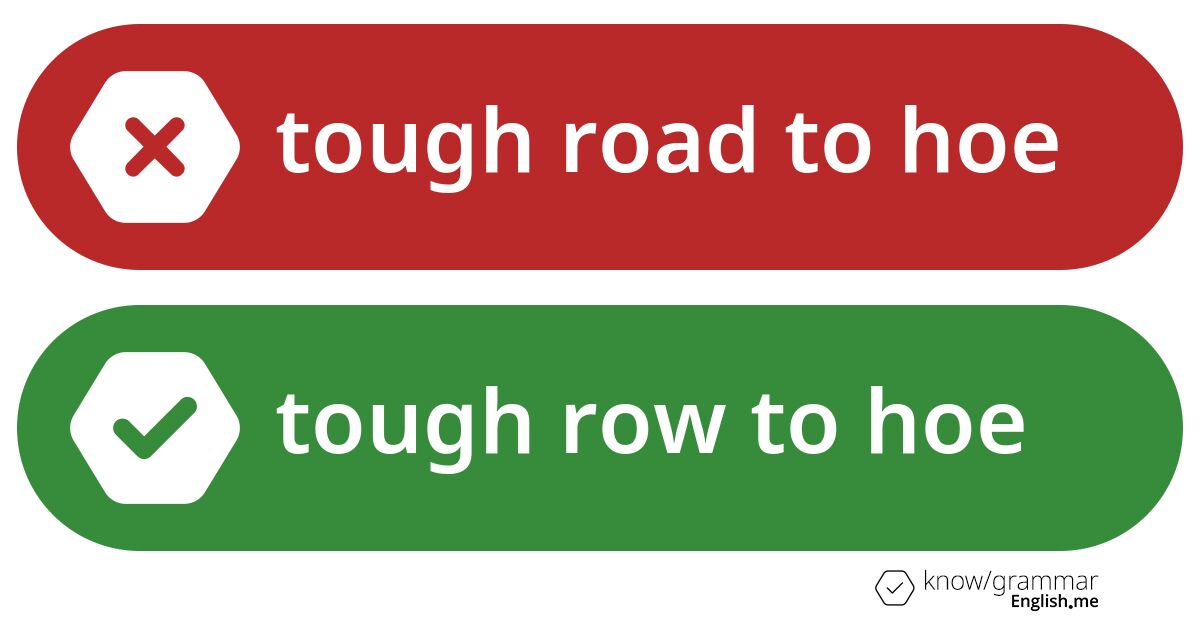Why "tough road to hoe" doesn't make sense
Reviewed and edited by  Lloyd Cooper 26/10/2024, 22:04
Lloyd Cooper 26/10/2024, 22:04
English.me team member
 What kind of error is it?
What kind of error is it?

This is an example of a malapropism, where an incorrect phrase is mistakenly used in place of a similar-sounding, correct phrase.
 Why do people make this mistake?
Why do people make this mistake?
People often mishear the phrase "tough row to hoe" and mistakenly use "tough road to hoe". Since both "road" and "row" are common words, and hoeing a row is less familiar to those who aren't accustomed to agricultural practices, the phrase gets altered.
 What is correct?
What is correct?
"Tough row to hoe" is the correct phrase, as it refers to the difficult task of hoeing a row of crops, symbolizing a challenging or arduous task.
 Examples of correct usage
Examples of correct usage
- Given the complexity of the project, we've got a tough row to hoe ahead of us.
- They certainly have a tough row to hoe if they want to achieve success in such a competitive market.
- With so many challenges in front of them, it's no surprise they find themselves with a tough row to hoe.

 English
English español
español française
française italiano
italiano deutsche
deutsche 日本語
日本語 polski
polski česky
česky svenska
svenska Türkçe
Türkçe Nederlands
Nederlands